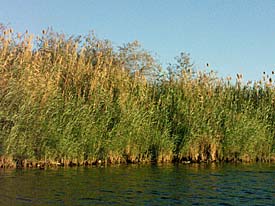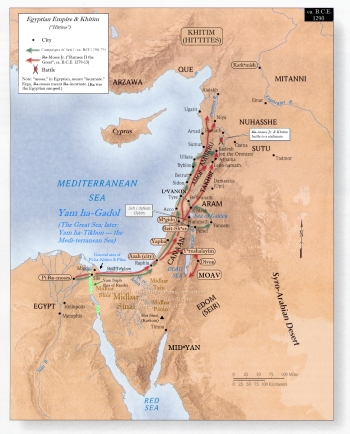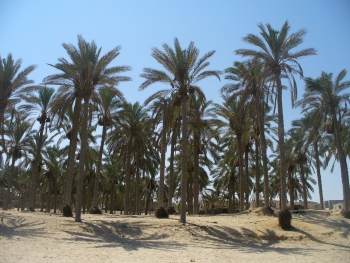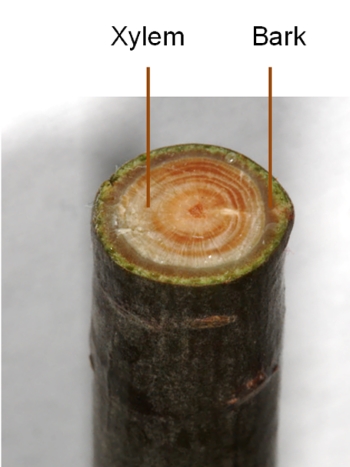
 |

 |
| Yâm Suph |
There was an enormous tumult![]() within the Mi•tzᵊraꞋyim legion. Countless chariots were hopelessly bogged down in the worsening mud and mire. The horses – themselves panicked in the deepening mud as they fought to survive the rising tide in the marshes – struggled in the marshes to pull the chariots free. Wheels had broken off and horses, riders and chariot crews were drowning. "We gotta get away from the Israelis," some Mi•tzᵊraꞋyim were screaming. "é‑‑ä is fighting for them while they just sit and watch."
within the Mi•tzᵊraꞋyim legion. Countless chariots were hopelessly bogged down in the worsening mud and mire. The horses – themselves panicked in the deepening mud as they fought to survive the rising tide in the marshes – struggled in the marshes to pull the chariots free. Wheels had broken off and horses, riders and chariot crews were drowning. "We gotta get away from the Israelis," some Mi•tzᵊraꞋyim were screaming. "é‑‑ä is fighting for them while they just sit and watch."
Then Mōsh•ëhꞋ stretched-forth![]() his arm
his arm![]() over ha-Yâm
over ha-Yâm![]() as morning brought high tide and the Mi•tzᵊraꞋyim were dragged underwater caught in their chariots' riggings and trampled underwater by their thrashing horses. Thus did é‑‑ä shake-off
as morning brought high tide and the Mi•tzᵊraꞋyim were dragged underwater caught in their chariots' riggings and trampled underwater by their thrashing horses. Thus did é‑‑ä shake-off![]() the Mi•tzᵊraꞋyim in the midst of ha-Yâm.
the Mi•tzᵊraꞋyim in the midst of ha-Yâm.![]()
When high tide peaked, the maꞋyim and marsh reeds completely covered over, and washed away, all of the chariots, the mounted calvary horse-soldiers — completely wiping-out all of Par•ohꞋ's most elite military forces that had pursued Israel into ha-Yâm.![]() Not a trace remained visible. Just the maꞋyim and suph•imꞋ as they had been before.
Not a trace remained visible. Just the maꞋyim and suph•imꞋ as they had been before.
Yet, Bᵊn•eiꞋ-Yi•sᵊrâ•eilꞋ had walked through the midst of ha-Yâm.![]() on
on![]() wading-ground
wading-ground![]() , with a barrier of maꞋyim on each of their flanks. Thus, é‑‑ä preserved the nation of Yi•sᵊr•â•eilꞋ that day from the arm
, with a barrier of maꞋyim on each of their flanks. Thus, é‑‑ä preserved the nation of Yi•sᵊr•â•eilꞋ that day from the arm![]() of the Mi•tzᵊraꞋyim. And Yi•sᵊr•â•eilꞋ saw dead Mi•tzᵊraꞋyim washed up on the shore of ha-Yâm.
of the Mi•tzᵊraꞋyim. And Yi•sᵊr•â•eilꞋ saw dead Mi•tzᵊraꞋyim washed up on the shore of ha-Yâm.![]()
So Yi•sᵊr•â•eilꞋ saw a great arm![]() that é‑‑ä made in Mi•tzᵊraꞋyim. And the am became Yi•rᵊeiꞋ-é‑‑ä. They trusted é‑‑ä — and His ëvꞋëd, Mōsh•ëhꞋ.
that é‑‑ä made in Mi•tzᵊraꞋyim. And the am became Yi•rᵊeiꞋ-é‑‑ä. They trusted é‑‑ä — and His ëvꞋëd, Mōsh•ëhꞋ.
Egypt's calamity so devastated their most elite armored and cavalry corps that they would present no threat for several years.
So Israel took a time-out while Mōsh•ëhꞋ composed a national song to é‑‑ä and taught it to Bᵊn•eiꞋ-Yi•sᵊrâ•eilꞋ. Then they sang it together:
♫ I will sing unto é‑‑ä, Exalted Singularity;
Both horse and rider did He lure into the sea.
Yâh is my Strength and Melody,
He's also my proven Cavalry.
This is my Eil, andI'll exalt Him,
My father's Eil and I will praise Him!
He's a Man of war,é‑‑ä's His Name.
Into the seaHe hurled më•rᵊkâv•ōtꞋ and steeds,
And drowned Par•ohꞋ's top commanders in the sea of Reeds. ♪
 350x263.jpg) |
(2011, photo Hanay) |
Then Mōsh•ëhꞋ 's sister, MiꞋrᵊyâm ha-Nᵊvi•yâhꞋ, along with all of the women, sang several lines of it while playing drums and dancing.
 |
Then Mōsh•ëhꞋ ordered Yi•sᵊr•â•eilꞋ to caravan out from Yâm Suph![]() from whence they caravanned-forth into Mi•dᵊbârꞋ Shur, three days
from whence they caravanned-forth into Mi•dᵊbârꞋ Shur, three days![]() into the mi•dᵊbârꞋ.
into the mi•dᵊbârꞋ.![]() But they found no maꞋyim.
But they found no maꞋyim.
So they came toward Mâr•âhꞋ. But they couldn't drink the maꞋyim at Mâr•âhꞋ because the maꞋyim were Mâr•imꞋ![]() (which is why they called the place Mâr•âhꞋ).
(which is why they called the place Mâr•âhꞋ).![]()
Consequently, the am complained to Mōsh•ëhꞋ asking, "What will we drink?"
When Mōsh•ëhꞋ cried out to é‑‑ä, a ma•lᵊâkhꞋ indigenous to the area apparently responded showing him a native method to form water filter![]() .
.![]()
 |
It was there He made this khōq and mi•shᵊpâtꞋ for é‑‑ä, having test-proven them:
"If you will utterly-hearken to the Voice
of é‑‑ä your ël•oh•imꞋ, and will do what is straightforward in His Eyes,
attenuating your ears to His mi•tzᵊw•otꞋ, and watchguard all of His khuq•imꞋ, then é‑‑ä says,
“I won't put on you all of the ills that I put on the Mi•tzᵊraꞋyim — because I am é‑‑ä, your Physician.”
So they caravanned Eil•imꞋ![]() -ward,
-ward,![]() where there were 12 wells of maꞋyim and 70 date-palms. And they camped there by the maꞋyim.
where there were 12 wells of maꞋyim and 70 date-palms. And they camped there by the maꞋyim.

Optional parental preparation:
àÅéìÄîÈä (Eil•im•âhꞋ — Eil•imꞋ-ward, toward Eil•imꞋ). àÅéìÄí + suffix ä meaning "□ward"; i.e. "toward" (the gods, gods-ward, godstown-ward, godsville-ward). A village probably named for to its a•shᵊr•âhꞋ date-palm grove "Garden of the goddess" (Ash•tōrꞋët); i.e. modern el-Ar•ishꞋ (Arabic: "the Palm Huts").
Alternately, àÅéìÄí may be a metonym for the nearby Har Sin•aiꞋ, which had been known from the mists of antiquity as the most special mountain of the gods – merely 11 days caravan SSE![]() of their location in the vicinity of Qâ•deishꞋ Bar•neiꞋa
of their location in the vicinity of Qâ•deishꞋ Bar•neiꞋa![]() and Har Khor•eivꞋ.
and Har Khor•eivꞋ.![]() àÅéìÄîÈä, then, would suggest a general orientation or Khag to Har Sin•aiꞋ.
àÅéìÄîÈä, then, would suggest a general orientation or Khag to Har Sin•aiꞋ.
Mas•âhꞋ,![]() Mᵊriv•âhꞋ
Mᵊriv•âhꞋ![]() and Rᵊphid•imꞋ
and Rᵊphid•imꞋ![]() are all likely outlying satellite encampments, including military encampments, that budding Israel was growing in the region encompassing modern el-Ar•ishꞋ to Qâ•deishꞋ Bar•neiꞋa.
are all likely outlying satellite encampments, including military encampments, that budding Israel was growing in the region encompassing modern el-Ar•ishꞋ to Qâ•deishꞋ Bar•neiꞋa.
In this early time in history, Kᵊna•anꞋ was primarily an agrarian region of tribal herdsmen and farmers still fighting range wars and forming tribal city-kingdoms for protection from local rivals. Ancient militaries didn't cross deserts with arms and equipment well. Accordingly, stronger powers from the East (modern Iraq or Iran) preferred to travel the northern route, through Syria. Thus, the only and attack from the north. Thus, Kᵊna•anꞋ, being bounded on the the east by desert, faced threats primarily from either the north (through Syria) or the south (Egypt). Thus, regional protection was understood in terms of alliances with either of the two world powers: Egypt or whoever ruled from the north through Syria.
Meanwhile, all of these tribal city-kingdoms served as the battlefield of wars between two great world powers – the African power, Egypt on the southwest, and Syria to the north (often ruled by Mesopotamia![]() or Persia
or Persia![]() to the east of Syria), each of whom fears the other's potential control over Israel. Neither power was secure without some exercise of control over Kᵊna•anꞋ/Israel (for a broader view, see Dr. George Friedman, "The Geopolitics of Israel, Ancient and Modern").
to the east of Syria), each of whom fears the other's potential control over Israel. Neither power was secure without some exercise of control over Kᵊna•anꞋ/Israel (for a broader view, see Dr. George Friedman, "The Geopolitics of Israel, Ancient and Modern").
As a result, these tiny tribal city-kingdoms were repeatedly ground between the two great, North and South, world powers like pebbles between two boulders. Repeatedly destroyed by the greater powers fighting over-top of them, the tribal city-kingdoms in Kᵊna•anꞋ remained small and contentious toward each of their occasionally-enemy, frenemy, neighbors. Regional instability created changing alliances and regional conflict, rendering them incapable of unifying into a single nation.
In such an environment, building a military capable of successfully taking just one sizable city meant a military capable of conquering a kingdom in Kᵊna•anꞋ. This is what enabled Yᵊho•shuꞋa to, step-by-step, conquer Kᵊna•anꞋ tribal city-kingdom by tribal city-kingdom, every victory incorporating women and children building an even greater military force until Israel was able, by aligning either with Egypt or some force from the north (and, via the north route, east), to tip the scale and determine the victor. This, in turn, afforded budding and burgeoning Israel considerable negotiating powers with both powers in securing significant self-determination relative to both Egypt and the alternating powers emanating from the north (or east). ![]()
Drilling a small hole, only partway down, the middle of a sapwood limb of a coniferous tree (forming a cup-like filter with super-thick sides and bottom), then immersing the bottom in brackish water, creates a plant xylem water filter that draws filtered, potable water up into the drilled hole, powered only by gravitational pressure. One filter could satisfy one person's need (several liters/day) of potable water.![]()
 |  350x263.jpg) |
The Juniperus phoenicea is a conifer found on coastal areas throughout the Mediterranean region and native to the Sinai coast.
A probably less efficient method is to form a sealed-cone filter from the bark of a local shrub or tree. Partially sinking the bark cone into the brackish water of an inland pool or creek allowed simple water pressure to cause potable water to collect within the water filter. ![]()
What does "attenuate" mean?
Questions you might anticipate that your child might raise and be prepared to discuss:
What is a "rock concert"?
What is a national anthem?
What is a tumult?
What is mire?
What does it mean to "panic"?
What does "elite" mean?
What does "trust" mean?
What does "Singularity" mean?
What does "indigenous" mean?
What is a "native method"?
What is ground water? What is brackish? Why would groundwater near the coast be brackish? What is a water filter?
What does "test-prove" mean?
![]()
 |
 |